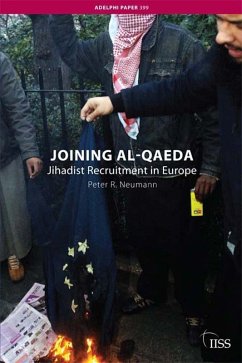
The Secret History of Al Qaeda (eBook, ePUB)

PAYBACK Punkte
0 °P sammeln!
Over the last ten years, journalist and al-Qa'ida expert Abdel Bari Atwan has cultivated uniquely well-placed sources and amassed a wealth of information about al-Qa'ida's origins, masterminds and plans for the future. Atwan reveals how al-Qa'ida's radical departure from the classic terrorist/guerrilla blueprint has enabled it to outpace less adaptable efforts to neutralize it. The fanaticism of its fighters, and their willingness to kill and be killed, are matched by the leadership's opportunistic recruitment strategies and sophisticated understanding of psychology, media, and new technology ...
Over the last ten years, journalist and al-Qa'ida expert Abdel Bari Atwan has cultivated uniquely well-placed sources and amassed a wealth of information about al-Qa'ida's origins, masterminds and plans for the future. Atwan reveals how al-Qa'ida's radical departure from the classic terrorist/guerrilla blueprint has enabled it to outpace less adaptable efforts to neutralize it. The fanaticism of its fighters, and their willingness to kill and be killed, are matched by the leadership's opportunistic recruitment strategies and sophisticated understanding of psychology, media, and new technology - including the use of the internet for training, support, and communications. Atwan shows that far from committing acts of violence randomly and indiscriminately, al-Qa'ida attacks targets according to a decisive design underwritten by unwavering patience. He also argues that events in Iraq and Saudi Arabia are watershed moments in the group's evolution that are making it more dangerous by the day, as it refines and appropriates the concept of jihad and makes the suicide bomber a permanent feature of a global holy war. While Osama bin Laden and Ayman al-Zawahiri remain al-Qa'ida's figureheads, Atwan identifies a new kind of leader made possible by its horizontal chain of command, epitomized by the brutal Abu Mus'ab al-Zarqawi in Iraq and the bombers of London, Madrid, Amman, Bali, and elsewhere.
Dieser Download kann aus rechtlichen Gründen nur mit Rechnungsadresse in A, B, BG, CY, CZ, D, DK, EW, E, FIN, F, GR, H, IRL, I, LT, L, LR, M, NL, PL, P, R, S, SLO, SK ausgeliefert werden.













